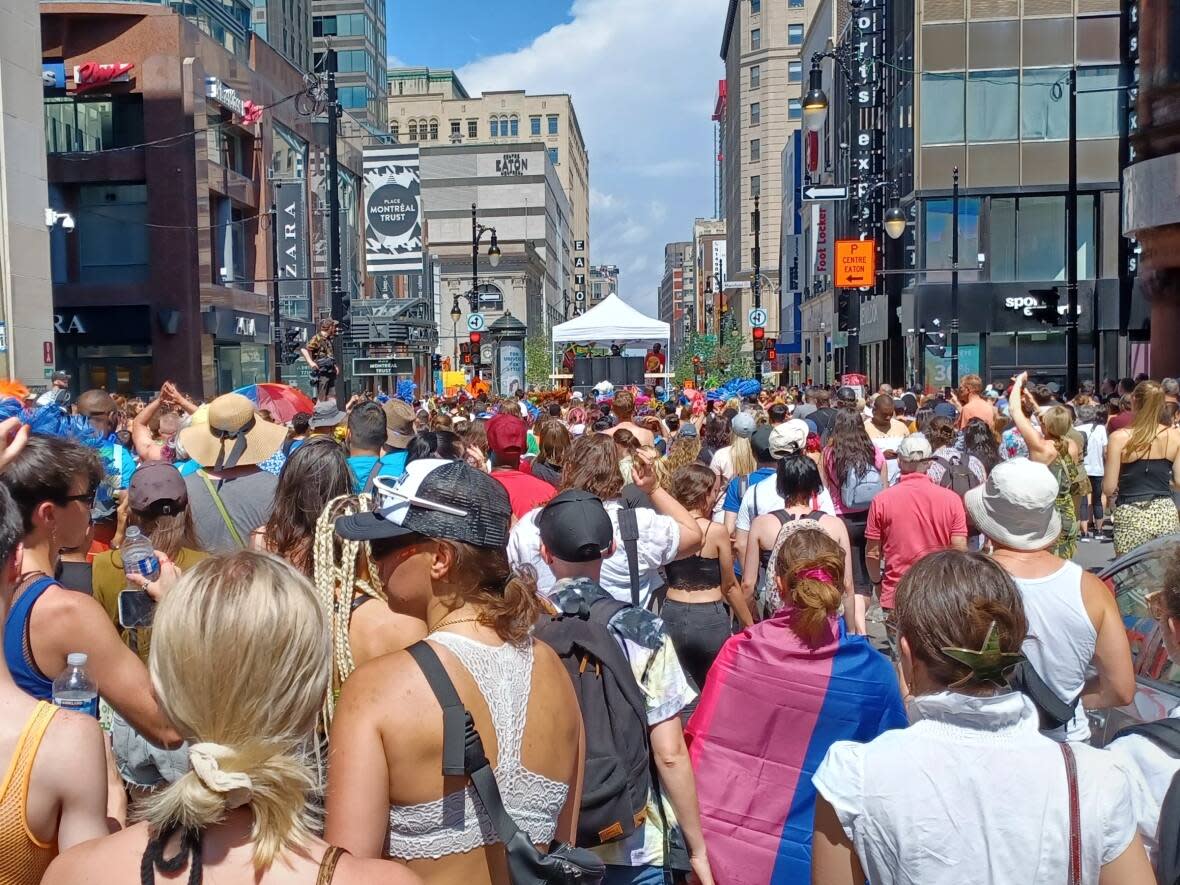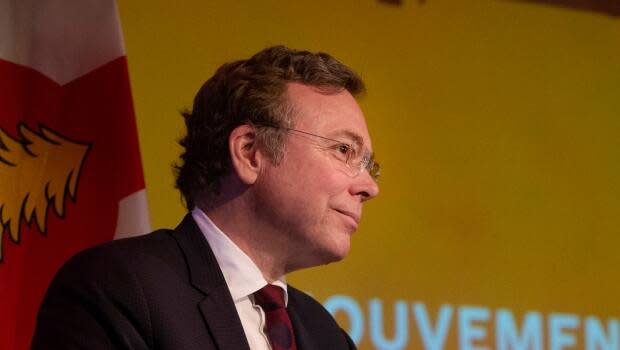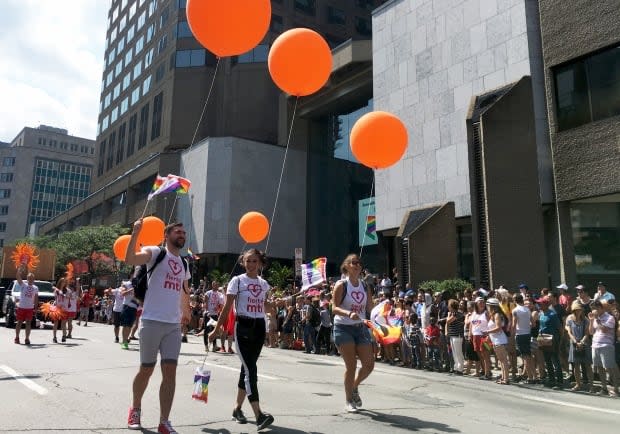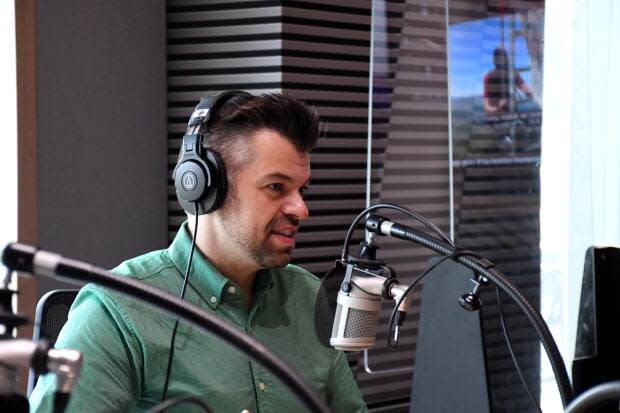Disorganization and a misunderstanding led to cancelling of Montreal Pride parade: report

At 8:43 a.m. on Aug. 7, Simon Gamache sprinted through the Sheraton Hotel in Montreal to the room where Pride parade personnel were supposed to be getting ready, only to find it empty.
The executive director of Montreal Pride, the organization in charge of the city's Pride parade and festival, had not been informed that staff were told to go home, despite asking people to remain on "standby" as he and his team tried to save the parade, which was scheduled for 1 p.m.
Outside, cars whizzed by on René-Levesque Boulevard. The street, where 12,000 parade participants and a crowd of up to 100,000 were expected in mere hours, had already been reopened to traffic.
According to a report into what went wrong that day, a series of mistakes and trigger reactions led to the parade's cancellation.
"The cancellation of the parade was the result of a series of chaotic exchanges on the phone or by text messages in a climate of emergency," wrote the author of the report, Philippe Schnobb, the former chair of Montreal's transit agency, Société de transport de Montréal (STM).
He determined that the parade was not cancelled "voluntarily or maliciously" but found that a lack of communication among an overloaded staff, including the departure of two key members, had contributed to the fact that 96 security volunteers were not recruited.
More transparency needed
Schnobb made 13 recommendations, including a reorganization of Montreal Pride's entire governance structure, "professionalizing" its board of directors and publishing financial reports on its website to improve transparency.
He said the board was already revising its regulations.
"I believe the crisis … is an excellent opportunity for Montreal Pride to take steps to regain the confidence of its partners and of the general public," wrote Schnobb, who held 60 meetings lasting between 15 minutes and two hours each.

Soon after the parade was cancelled, rumours circulated that Montreal police had forced it to close because a contingent of LGBTQ+ officers had been excluded, while others believed the organization had received threats. When the announcement became official, people demanded answers and wondered why Montreal Pride hadn't requested more help to recruit volunteers.
Hundreds gathered for an impromptu Pride march through the streets of downtown Montreal instead.
Montreal Mayor Valérie Plante requested the independent review Schnobb was named days later to conduct.
Montreal Pride manages a $6-million annual budget, 85 per cent of which is funded by government agencies and private entities. Its largest cost is the festival, but the parade is considered one of the top 10 most important events of the year in Montreal and generates about $10 million in economic spinoffs.

Though Montreal Pride had a plan for emergencies, Schnobb said it was not well-known by staff and there was no specific plan for emergencies related to the parade itself.
An 8:03 a.m. phone conversation between two staff members, following the realization that they were missing the 96 security volunteers, set in motion the "demobilization" of other security staff, as well as of Montreal police officers assigned to the parade.
By the time Gamache arrived at the hotel 40 minutes later, it was too late. The report didn't specify why that information wasn't shared with him.
Two minutes before his arrival, a Radio-Canada radio program had broadcast the news that the parade would not take place. Gamache felt he had no choice at that point to proceed with cancelling the event and the group issued a statement on its Facebook page at 9:13 a.m.
In an interview Tuesday, Schnobb said the Montreal Pride staff who told volunteers to go home felt they had to act quickly because of just how many thousands of people were involved in the parade.
"Everyone acted in good faith. It's just that at one point, there should have been a double-check," he said.
"The time frame they had to make a decision was very short."
But if a crisis team had mobilized to problem-solve, "the decision could have been different — or not — but [at least] they would have had time to make a decision," Schnobb said.
Part of the reason why the 96 security volunteers weren't recruited is that there was confusion about whether they were supposed to be paid staff or volunteers, and there was no line in the parade's budget indicating the need for them.
The person in charge of recruiting volunteers was not tasked with recruiting them, and that person went on medical leave two weeks before the parade. What's more, one of the people in charge of organizing the parade was fired at the end of June.
Schnobb recommended that all security personnel be paid in the future to ensure their presence at the parade.

In a statement, Gamache, the executive director, said the organization was committed to regaining the trust of the public and the community it serves.
"My team and I will continue the work of consolidation in order to ensure the development and smooth running of all the activities of the Montreal Pride Festival — including, first and foremost, the flagship event that is the Pride parade,'' Gamache said.
Mayor Valérie Plante welcomed the report and praised Pride Montreal for collaborating in the investigation and for proactively making changes to ensure the future success of one of the city's biggest events.
Moe Hamandi, the president of Pride's board of directors, also issued a statement, saying he received the report "with openness and humility."


